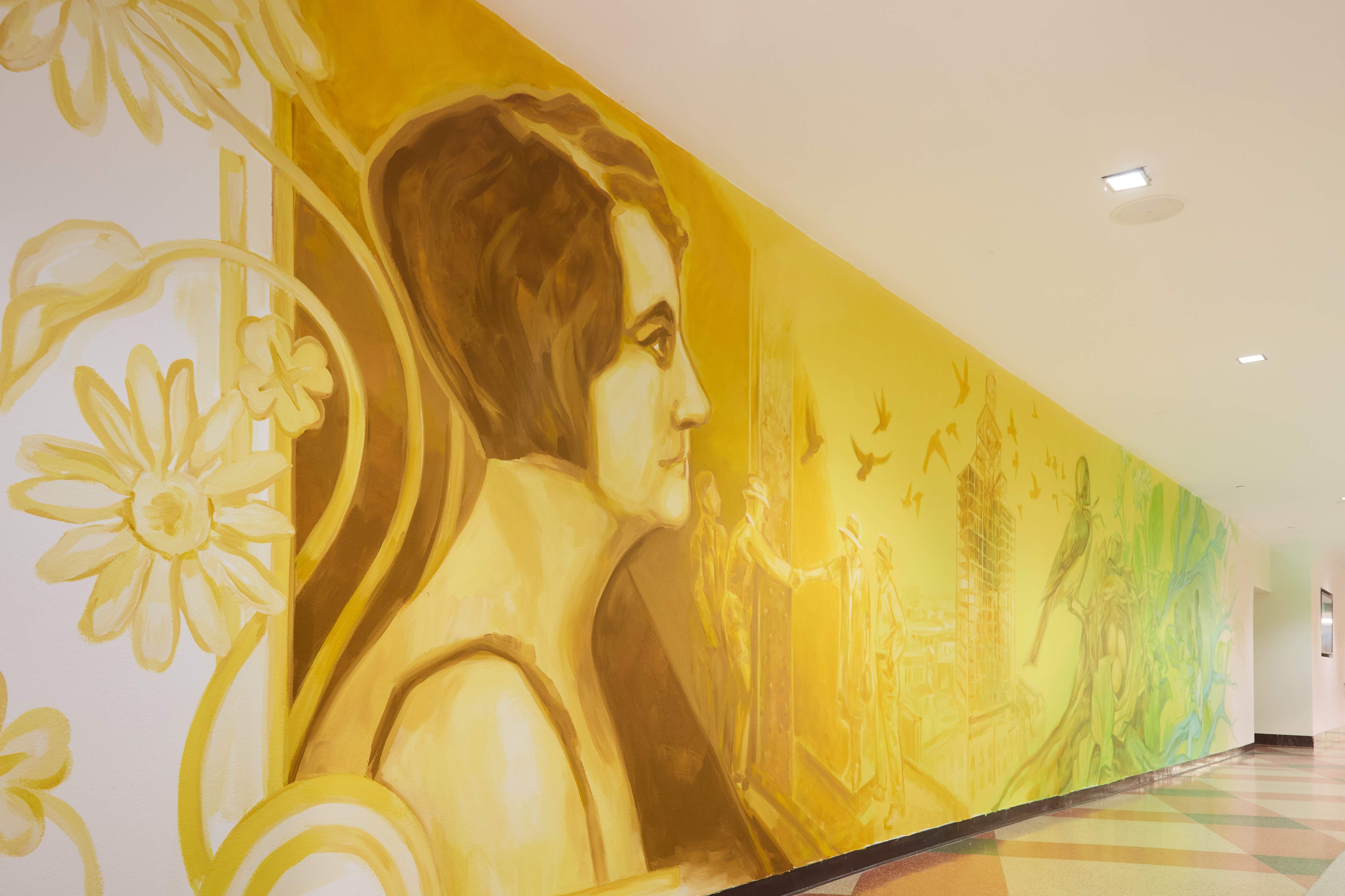
Houston artists have created unique carbon-absorbing art. "Future's Past" by Emily Ding in partnership with UXD tells the story of the Mellie Esperson building. Photo courtesy of Dario DeLeon
Anthony Rose, the CEO of creative agency United By Design, is on a mission to brighten Houston’s urban spaces and improve the city’s air quality one carbon-absorbing mural at a time.
Rose originally founded United By Design, or UXD, in 2019 to connect muralists like himself and commercial businesses seeking to beautify their spaces and form brand identities. After creating vibrant murals for Lockhart Elementary School, the Houston Astros, and Smoothie King, Rose expanded UXD’s vision to include environmental sustainability in their artistic collaborations in 2022.
“This city’s vibrant art scene and growing focus on sustainability makes it an ideal location for our projects,” Rose says. “We’re not just creating eco-friendly murals, we’re reimagining how art can actively contribute to environmental solutions.”
In search of ecologically-conscious paints, Rose formed a partnership with Spain-based, natural paint company Graphenstone. Rose says he was drawn to the company’s eponymous Graphenstone coating because of its nontoxic ingredients and exclusively uses the product for UXD’s carbon-absorbing murals.
The Graphenstone coating consists of a limestone base which goes through a process called photocatalysis, during which carbon dioxide from the atmosphere is absorbed into the surface, and is then sealed in with graphene, a thin layer of carbon atoms. The murals absorb carbon dioxide throughout the coat’s drying process which typically takes 30 days.
“Each of our murals absorbs about 1600 grams of CO2 during that curing process which is the equivalent daily absorption of about 33 growing trees,” Rose explains.
UXD’s largest carbon-absorbing mural to date is a floor-to-ceiling panorama in downtown Houston’s historic Mellie Esperson building, home to the company’s new creative hub. Painted by Houston-born artist Emily Ding, the mural is a tribute to the establishment’s namesake: an innovative, early 20th century entrepreneur who constructed the opulent building.
Rose says UXD plans to expand their carbon-absorbing murals project in collaboration with more local artists and establishments, while creating an artist-in-residency program themed around sustainability. Though Rose acknowledges in the grand scheme of carbon pollution these murals are not a silver bullet, he says the non-toxic paints are encouraging conversations about how artists can be conservation-minded.
“We’re trying to figure out how art as a messaging tool can help break down scientific data, a language not many people practice daily, can break down barriers and help bridge the gap to a more intuitive knowledge of sustainability,” Rose says. “We’re bringing the community together, helping them feel empowered, and giving them actionable information to help them live more sustainable lives.”
———
This article originally ran on InnovationMap.